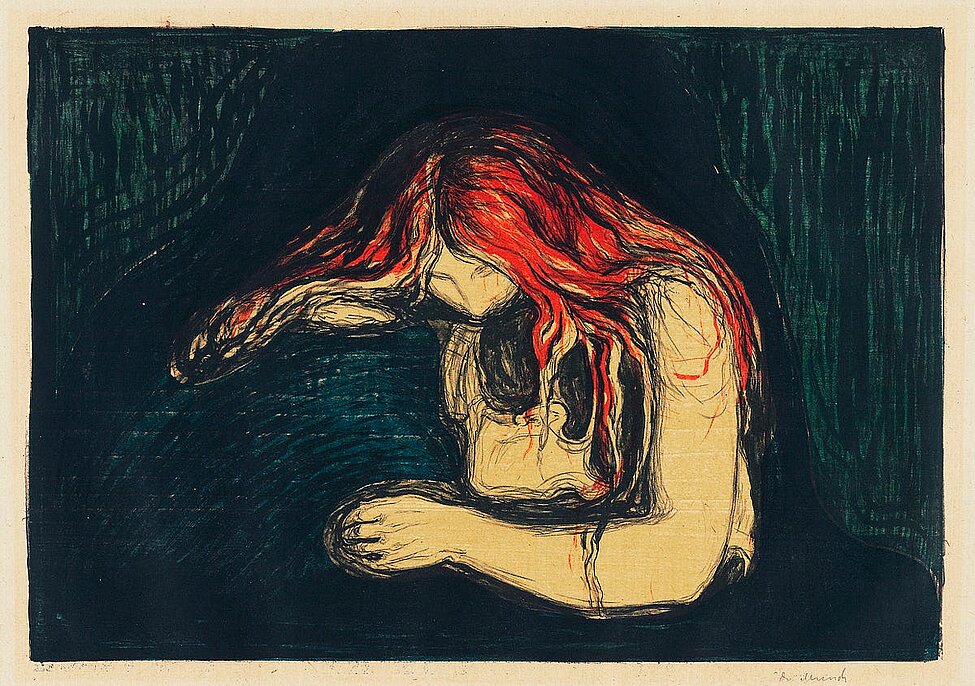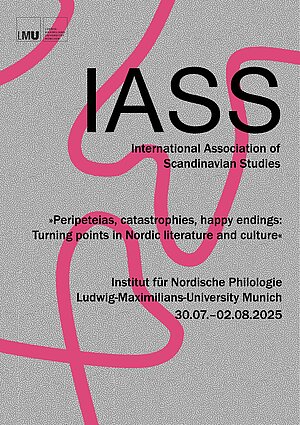Call for Papers: Peripeteias, Disasters, Happy Endings: Turning Points in Nordic Literature

International Association for Scandinavian Studies (IASS) calls for papers for their upcoming conference which will take place in Munich 30 July- 2 August, 2025. Deadline for abstracts is January 15, 2025.

As the theme for IASS 2025, IASS have proposed »Peripeteias, Disasters, Happy Endings: Turning Points in Nordic literature«. These concepts all have their roots in literary studies and are therefore part of the toolbox we work with every day.
As many will know, it was Aristotle who first used the term peripeteia in his Poetics. For him, peripeteia refers to the turning point in a drama, i.e. the moment when it becomes clear that what the characters had expected will not happen after all, or that it will happen in a different way; the moment when suddenly the situation appears in a new light. The peripeteia is thus the point at which the spectators understand the logic of the drama's action. It has the function of bringing together all the elements of the action into an overall plot, and in relation to this plot the various elements take on their individual significance. In other words, the peripeteia is the central tool in the formation of meaning.
The concept is also central to narratology, where it is known as event or sujet. According to Juri Lotman, the basic definition of a narrative is that a state A is transferred to a state B. And the sujet connects the two states and thus defines the narrative. This narratological definition applies to all stories. It applies to theatre texts and novels, to epics and comics, to feature films and happenings – in other words, to all narratives that we usually consume as aesthetic products. This definition can however equally be applied to factual narratives, i.e. to documentaries and stock exchange courses, to history books and ecological dystopias, to everyday narratives at the kitchen table and to temperature charts at the foot of a hospital bed. Peripeteias create relevance by segmenting time and structuring it into before and an after.
The reevaluation of these central concepts from drama theory and narratology hold great potential for literary studies in general and for our discipline in particular. We live in a reality that is often referred to in the media as a turning point. The Russian invasion of Ukraine is in many ways perceived as a turning point and has a direct impact on how we narrate European history since the Second World War. It functions in the same way as a peripeteia in a drama: the invasion forces us to reinterpret everything that has happened before. Just think of Sweden's membership of NATO. Or another example: The burning forests all over the world make us wonder what turning points we will see in the near future – a voluntary transformation in our behaviour, or an ecological disaster forced upon us by agencies outside human control? Either way, there is no doubt that we are heading towards a peripeteia.
It is therefore an opportune moment for literary scholars to reflect on how our established concepts – peripeteia, catastrophe, happy ending – help us to understand the connection between literature and the world around us: How do fictional texts from different eras construct their turning points? Which peripeteias do we organise literary history around? Which peripeteias define our professional understanding? How do literary texts interact with peripeteias from non-literary narratives? Which events in history do historical novels or dramas choose, and how do they put them into perspective? How is the Christianisation of Iceland presented as a peripeteia in Norse texts? What aesthetic strategies do literary texts use to create expectations of the future? How does literature meet the narrative challenges of climate change? Is the concept of the Anthropocene a narrative, and is it one we want to narrate? And when can we talk about a happy ending?
The theme Peripeteias, Disasters, Happy Endings: Turning Points in Nordic Literature thus opens up a multitude of different perspectives on texts from all genres and eras, and also gives us the opportunity to reflect on our sense of ourselves as scholars of literature.
IASS look forward to discussing these perspectives with you in Munich!
To submit, please send a title and abstract to iass2025@lrz.uni-muenchen.de by January 15, 2025.
Read more here: IASS-konferansen i München
